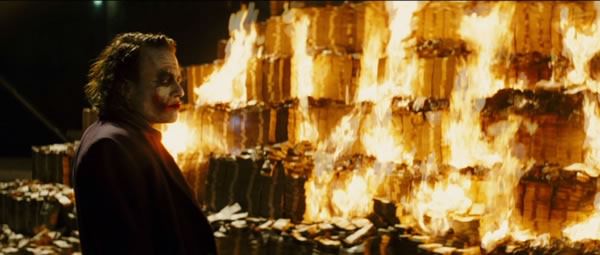A government watchdog says U.S. taxpayers are still owed $132.9 billion that companies haven't repaid from the financial bailout, and some of that will never be recovered.
The bailout launched at the height of the financial crisis in September 2008 will continue to exist for years, says a report issued Thursday by Christy Romero, the acting special inspector general for the $700 billion bailout. Some bailout programs, such as the effort to help homeowners avoid foreclosure by reducing mortgage payments, will last as late as 2017, costing the government an additional $51 billion or so.
The gyrating stock market has slowed the Treasury Department's efforts to sell off its stakes in 458 bailed-out companies, the report says. They include insurer American International Group Inc., General Motors Co. and Ally Financial Inc.
If Treasury plans to sell its stock in the three companies at or above the price where taxpayers would break even on their investment — $28.73 a share for AIG, $53.98 for GM — it may take a long time for the market to rebound to that level, the report says. AIG's shares closed Wednesday at $25.31, while GM ended at $24.92. Ally isn't publicly traded.
It will also be challenging for the government to get out of the 458 companies as the market remains volatile and banks struggle keep afloat in the tough economy, it says.
Congress authorized $700 billion for the bailout of financial companies and automakers, and $413.4 billion was paid out. So far the government has recovered about $318 billion. The bailout is called the Troubled Asset Relief Program, or TARP.
"TARP is not over," Romero said in a statement. She said her office will maintain its commitment to protect taxpayers for the duration of the program.
Treasury spokesman Matt Anderson said the department "has made substantial progress winding down TARP and has already recovered more than 77 percent of the funds disbursed for the program, through repayments and other income."
"We'll continue to balance the important goals of exiting our investments as soon as practicable and maximizing value for taxpayers," Anderson said.
The government has unwound its investments in four of the companies that received the most aid: Bank of America Corp., Citigroup Inc., Chrysler Group LLC and Chrysler Financial, the automaker's old lending arm.
On Wednesday, Treasury announced that it had sold the final batch of securities under its $368 million Small Business Administration loan program under TARP.
In Romero's quarterly report to Congress, she said her office has uncovered and prevented fraud related to TARP. Investigations by her office have resulted in criminal charges against 10 people and three convictions, the report notes.
http://news.yahoo.com/taxpayers-still-owed-132-9b-bailout-report-051822679.html
ProPublica reports there is still a ~$320B deficit to be repaid (link in OP).

